Politics
/
August 2, 2024
The twisted political agenda behind smearing Kamala Harris as a political and racial chameleon.
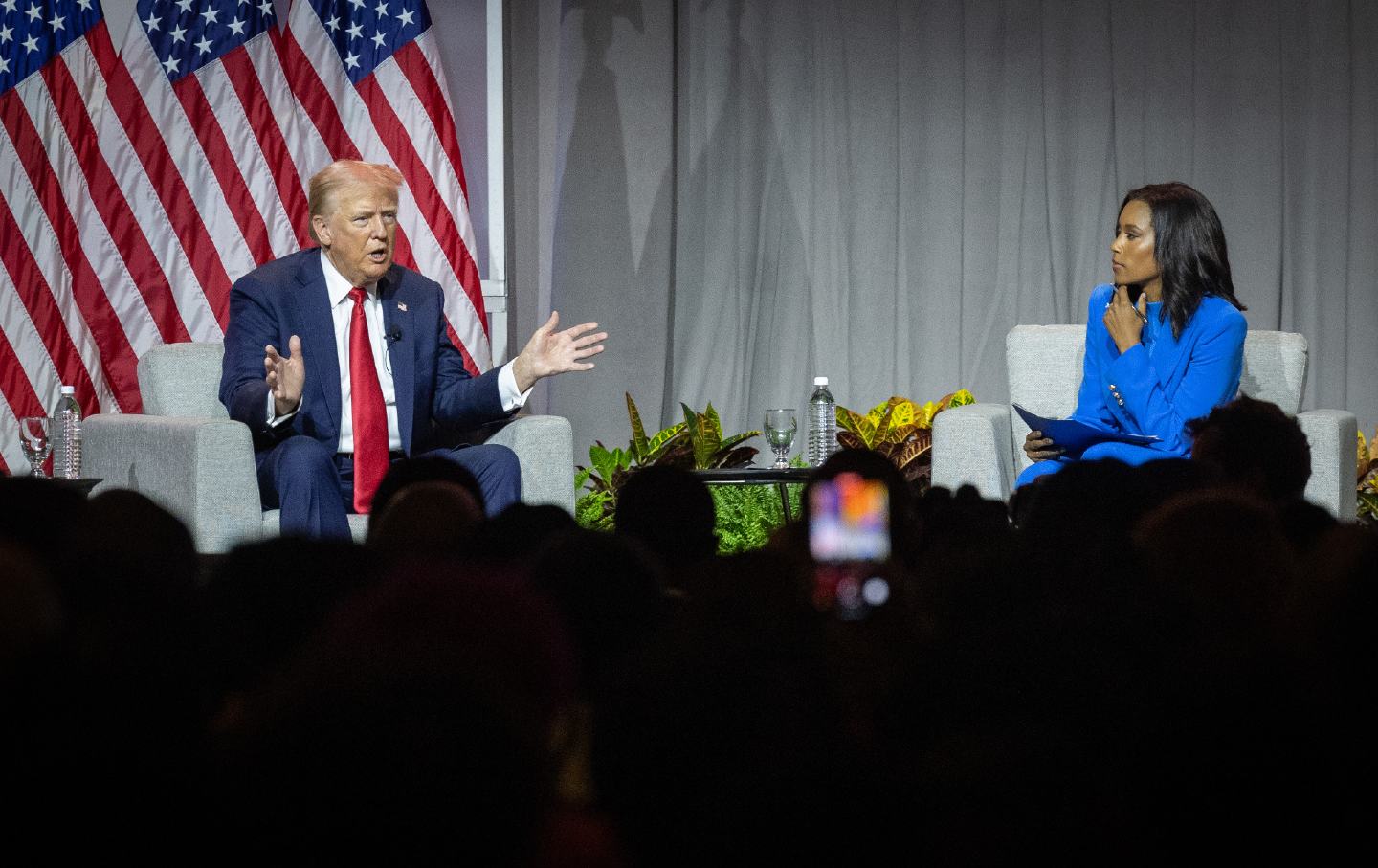
Donald Trump’s racism isn’t subtle and doesn’t require any special skill to detect. As against the old-school right-wing racism of a Ronald Reagan that relied on dog whistles about “welfare queens” and “states’ rights,” Trump is a shrill police whistle blaring out alarm about immigrant rapists and killers or birther lies about former president Barack Obama. But even rancid and ridiculous racism can conceal a hidden political agenda—one that it is all too easy to ignore because our natural impulse is to be dismissive and move on.
On Wednesday in an interview at the convention of the National Association of Black Journalists in Chicago, Trump had the temerity to question the Blackness of his rival, Vice President Kamala Harris. Amid gasps of astonishment from the Black journalists in the audience, Trump falsely asserted that Harris “was always of Indian heritage, and she was only promoting Indian heritage. I didn’t know she was Black, until a number of years ago, when she happened to turn Black, and now she wants to be known as Black. So I don’t know, is she Indian or is she Black? I respect either one, but she obviously doesn’t.”
The first thing to say about Trump’s comment is it is factually and logically absurd. There’s no reason someone can’t be both Indian and Black. Harris has Indian heritage through her mother, who was born in India, and Black heritage through her father, who was born in Jamaica. Further, ethnicity is both a cultural and a biological matter, and Harris was raised in a predominately Black community in Berkeley and graduated from Howard University, one of America’s most distinguished historically Black universities, where she joined Alpha Kappa Alpha, a historically Black sorority.
Trump’s claim went against the argument—frequently made by other Republicans—that Harris was a “DEI [diversity, equity, and inclusion] hire” who became vice president only because she is a Black woman.
Trump’s comments came from a place of desperation. After Joe Biden’s decision to abandon his reelection bid, Harris quickly cemented her position as presumptive nominee of her party and surged in the polls. While Trump thought he’d cruise to victory against Biden, he is facing the real prospect of loss against Harris.
The very day Trump made his comments, Vivek Ramaswamy, tech mogul and Trump supporter, tweeted:
The hard truth is we need a massive reset right now. The criticism that Kamala mounted a coup on Biden isn’t landing, neither is the claim that she covered up Biden’s cognitive decline. None of that matters to voters now.
Current Issue
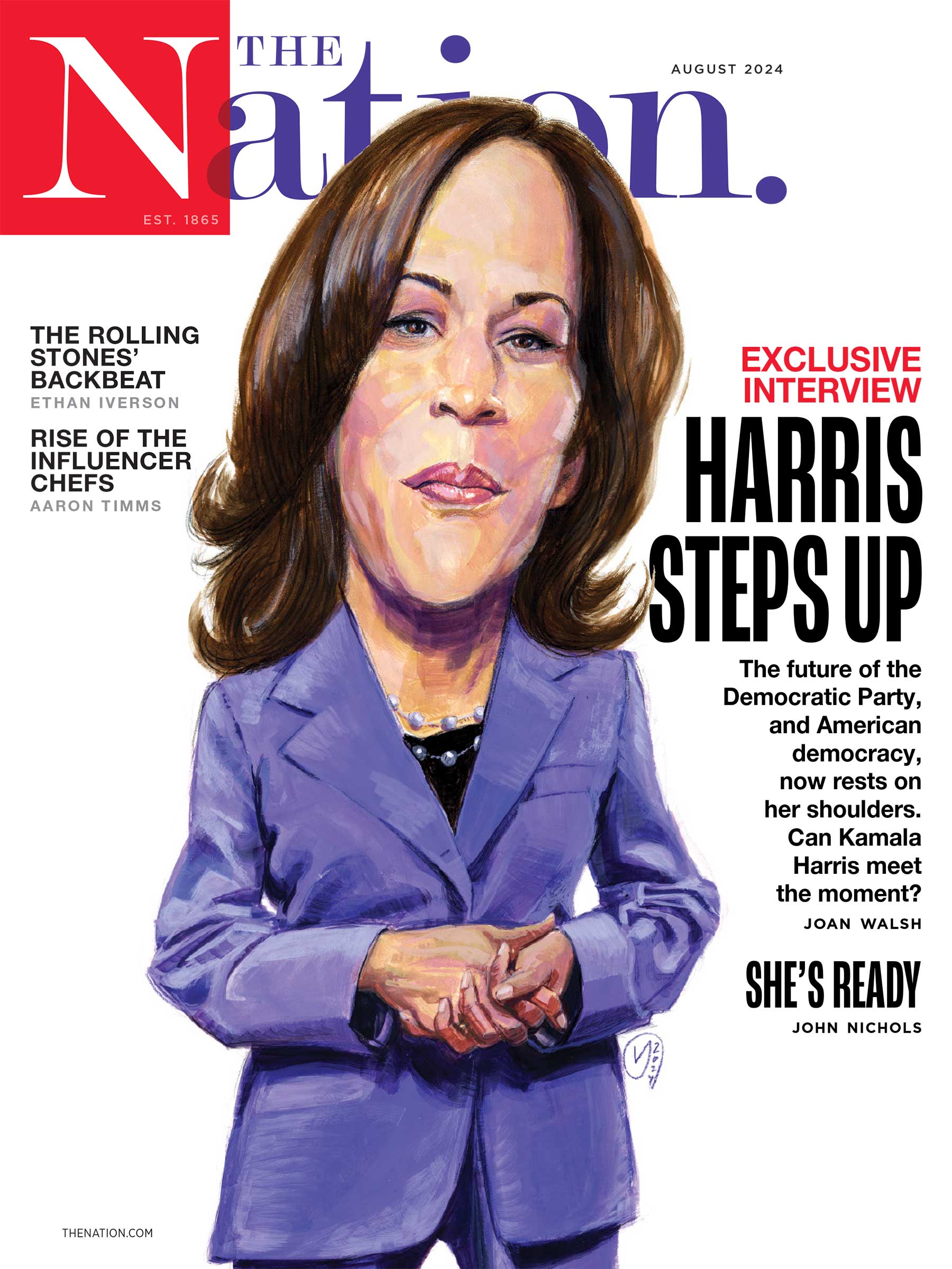
Trump’s new line that Harris is really an Indian was thus a replacement for earlier, failed arguments. It has the advantage of being thematically linked with the accusation that Harris is a political shape-shifter—a flip-flopper who presents herself as a moderate or progressive depending on the needs of the moment. Trump’s running mate, Ohio Senator JD Vance, made this connection explicit when he defended Trump’s comments by saying they were “hysterical” and that Trump had merely “pointed out the fundamental chameleon-like nature of Kamala Harris.” (Vance, of course, is hardly on solid ground himself, since he’s gone from being a Never Trump Republican to a complete MAGA minion, even swallowing his pride as his multiracial family is attacked by racists.)
Beyond the “chameleon” attack, Trump seems to be trying to open a wedge in the Black community, as New Yorker writer Jay Caspian Kang has noted. This is the divide between Black Americans who trace their origins to slavery inside this country versus Black Americans who are of more recent immigrant heritage (even if, like Harris, they have ancestors who were enslaved elsewhere). This divide has become more visible in recent years with the coinage of terms such as “American Descendants of Slavery” (ADOS) and Foundational Black Americans (FBA).
Lawyer Camera Williams has offered a useful backgrounder to Trump’s agenda in opening up this contentious divide:
Trump bringing up the VP’s identity is a specific dog whistle for a particular sector w/i the Black community. The ADOS & FBA community. It’s a pointed gambit designed to siphon votes from her otherwise strongest base…. The term “American Descendants of Slavery” (ADOS) was created in 2016 to describe & separate Black Americans/African Americans from Black immigrant communities.
The ADOS movement is closely aligned w/ another group of similar beliefs called Foundational Black Americans (FBA) founded by snake oil salesman, black male incel magnet & YouTuber, Tariq Nasheed. Both of these groups are funded by & have their origins in right wing think tanks.
There’s a ton of stuff that easily provides bread crumbs to this Psy Op designed to wedge a divide among Black Americans. The main point is to give an anti-immigrant perspective in relation to Black identity. The Trojan horse of reparations being the noted vehicle of racial discord.
While Williams is undeniably accurate in noting that some of the promoters of these concepts are bad-faith actors serving right-wing interests, it should also be acknowledged that these concepts spring from genuine sociological divides. Because of the horrific and continuing intergenerational history of American racism, Black immigrants often have a life trajectory very different from that of African Americans whose family history has deeper roots in the United States.
David J. Deming, the director of the Malcolm Wiener Center for Social Policy at the Kennedy School, told The Harvard Crimson in 2020 that “non-generational African Americans, or non-descendants of enslaved people, tend to do better than those who are traditionally called Black.” Denning added, “There is something about the history of a people and the way they were treated by society in the past that carries over to today’s society in ways that aren’t just captured by kind of a snapshot of economic characteristics.”
These facts have policy implications. There are real reasons for supporting anti-poverty and affirmative action measures that specifically seek to help ADOS. But these policy arguments can be disentangled from the fact that Black Americans have always been a diverse people and have included recent immigrants as well as those with long-standing national roots. After all, no serious person can deny that Marcus Garvey, Harry Belafonte, Colin Powell, Shirley Chisholm, and Barack Obama are all part of the history of Black America.
Blackness is a cultural and historical fact, not a biological one. Black Americans are a nation within a nation. Like any nation, they’ve always had immigrants. Indeed, Black Americans have often more quickly and fully accepted immigrants within their community than white Americans have immigrants inside the actual political nation.
It is true that some racists tried to use a similar argument to discredit Obama by arguing that his African immigrant and part-white background separates him from Black America. This was not an argument that gained any significant traction with Black Americans.
Trump’s racist questioning of Harris’s identity is likely to fail for many reasons. The argument about distinctions between Blacks of recent immigrant origins versus ADOS is an internal one to the Black community. It is one thing for Black thinkers (even ones writing in bad faith) to hash out these distinctions among themselves; it is another for a white man, particularly one with Trump’s history, to raise the same questions.
But then, Trump is actively courting backlash. Just as birther attacks on Obama only strengthened his popularity with Black Americans, it is likely that Harris will see a rallying effect. We’ve seen groups such as White Dudes for Harris form, but imagine the power that will come from Black Ladies and Dudes for Harris, motivated by racial solidarity and a proper sense that one of their own is under attack.
There’s also the very real possibility of a backlash from Indian Americans and the rapidly growing community of multiracial Americans (which includes, ironically, the family of JD Vance). Trump’s crude attempt to score a point is insulting to tens of millions of Americans who know that race is not a simple black-and-white matter but often a complex mixture.
Trump’s desperate attack on Harris is a divide-and-conquer move—but it also offers an opportunity for Harris. Her initial impulse has been to simply dismiss Trump’s comments, saying that they were the “same old show of divisiveness and disrespect.” This is true enough, and if Harris wanted to, she could just leave it at that.
Popular
“swipe left below to view more authors”Swipe →
But in politics fortune often favors the brave. What if Harris responded to Trump’s provocation by using it as an occasion to talk about her own remarkable life, about the two immigrants from different parts of the world who were her parents, about how after their divorce her mother found a community among her Black neighbors in Berkeley, and about how rich and complex the Black experience in America is? Such an approach—one that drew on the autobiographical opening to her 2019 book The Truths We Hold—would not only help Harris to establish a new bond with the public but also serve to elevate the American debate about racial identity that Donald Trump has done so much to degrade.
Can we count on you?
In the coming election, the fate of our democracy and fundamental civil rights are on the ballot. The conservative architects of Project 2025 are scheming to institutionalize Donald Trump’s authoritarian vision across all levels of government if he should win.
We’ve already seen events that fill us with both dread and cautious optimism—throughout it all, The Nation has been a bulwark against misinformation and an advocate for bold, principled perspectives. Our dedicated writers have sat down with Kamala Harris and Bernie Sanders for interviews, unpacked the shallow right-wing populist appeals of J.D. Vance, and debated the pathway for a Democratic victory in November.
Stories like these and the one you just read are vital at this critical juncture in our country’s history. Now more than ever, we need clear-eyed and deeply reported independent journalism to make sense of the headlines and sort fact from fiction. Donate today and join our 160-year legacy of speaking truth to power and uplifting the voices of grassroots advocates.
Throughout 2024 and what is likely the defining election of our lifetimes, we need your support to continue publishing the insightful journalism you rely on.
Thank you,
The Editors of The Nation
More from
Jeet Heer 

Wealthy centrists are already pressuring Democrats to give up their progressive achievements.
Jeet Heer

Patriarchy, plutocracy, and ethnonationalism fuel the vice-presidential candidate’s bizarre slur.
Jeet Heer

Democrats acted as a proper political party, while Republicans remain in thrall to a dangerous authoritarian.
Jeet Heer
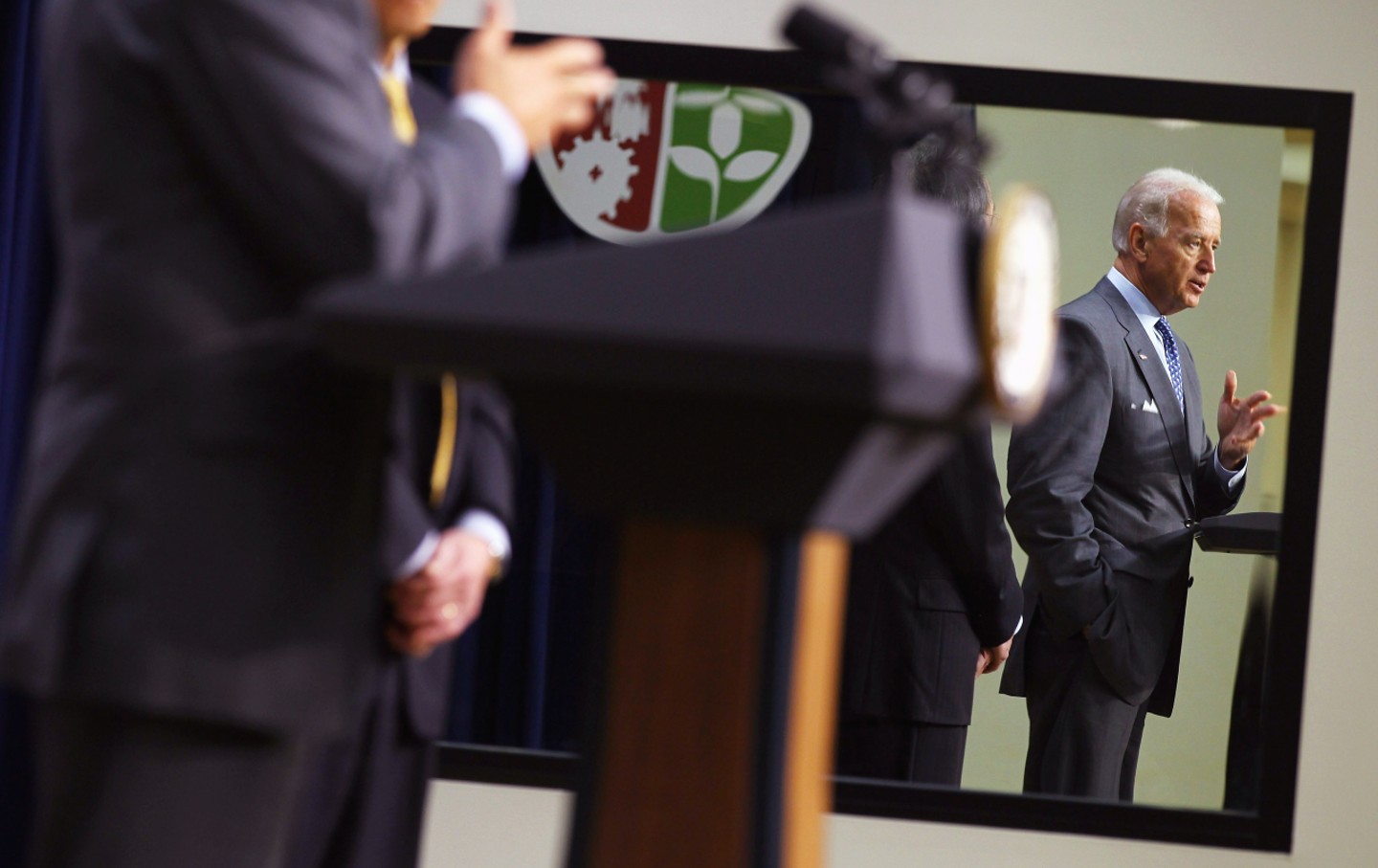
And so does the president. As he decides his future, Joe Biden has to come to terms with the war within himself.
Jeet Heer
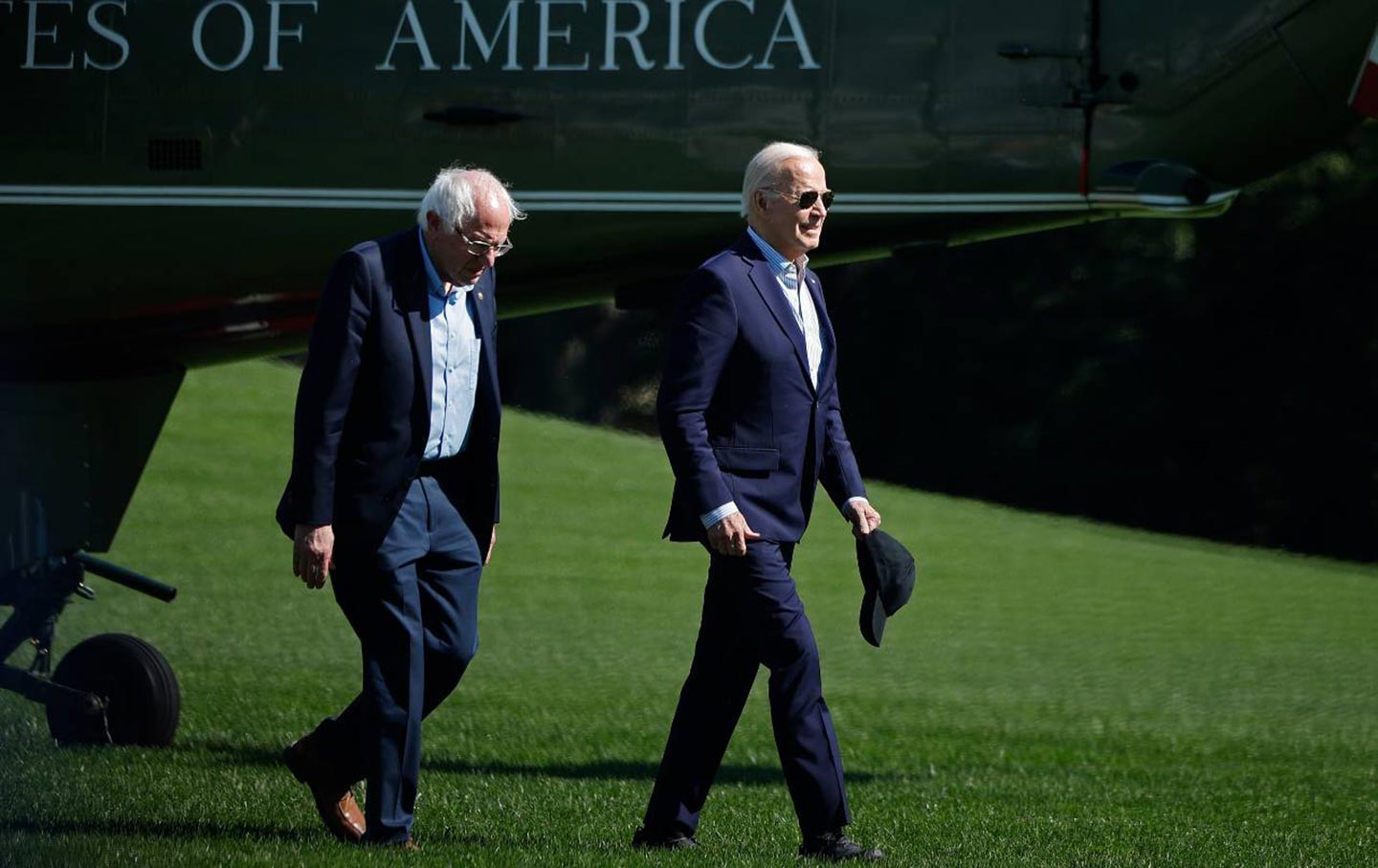
A wounded Biden is running on a platform that progressives have long dreamed about.
Jeet Heer
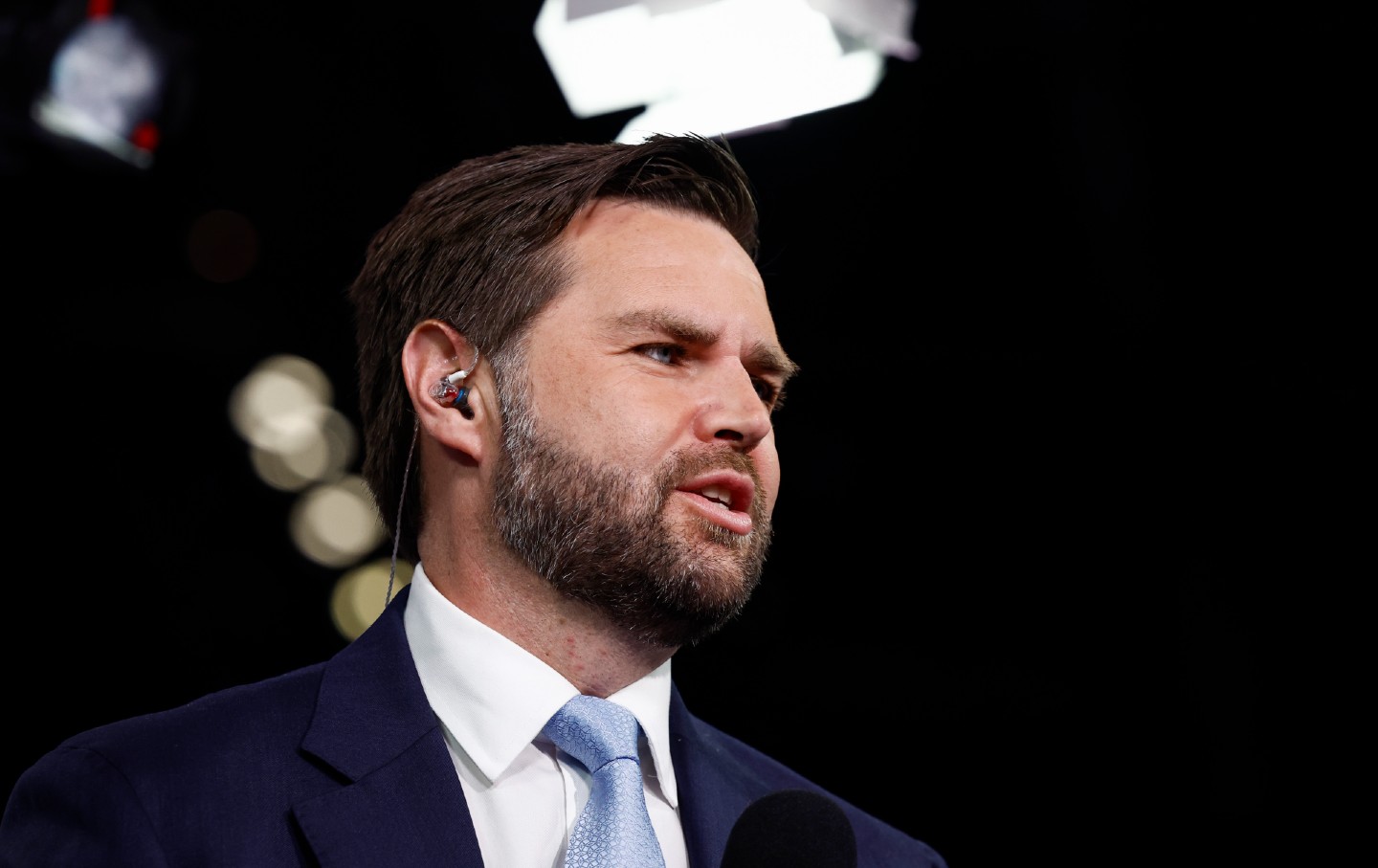
Trump’s running mate has a history of embracing rancid positions to rise to the top.
Jeet Heer

Felecia Phillips Ollie DD (h.c.) is the inspiring leader and founder of The Equality Network LLC (TEN). With a background in coaching, travel, and a career in news, Felecia brings a unique perspective to promoting diversity and inclusion. Holding a Bachelor’s Degree in English/Communications, she is passionate about creating a more inclusive future. From graduating from Mississippi Valley State University to leading initiatives like the Washington State Department of Ecology’s Equal Employment Opportunity Program, Felecia is dedicated to making a positive impact. Join her journey on our blog as she shares insights and leads the charge for equity through The Equality Network.




